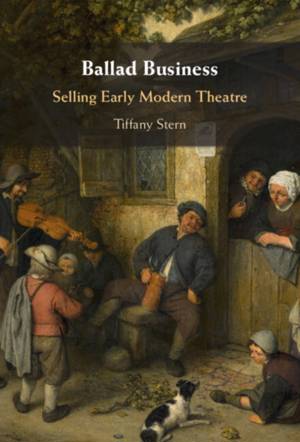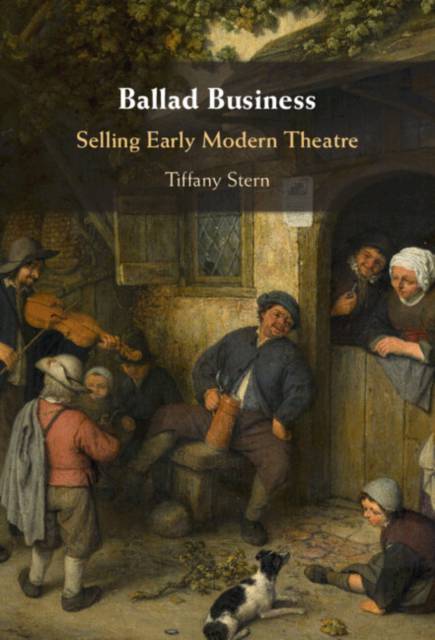
- Afhalen na 1 uur in een winkel met voorraad
- Gratis thuislevering in België vanaf € 30
- Ruim aanbod met 7 miljoen producten
- Afhalen na 1 uur in een winkel met voorraad
- Gratis thuislevering in België vanaf € 30
- Ruim aanbod met 7 miljoen producten
Zoeken
Omschrijving
Playwrights, including Shakespeare, often started out as song writers and regularly product-placed ballads within their dramas. In this enlightening study, Tiffany Stern asks who wrote, financed, published and marketed theatrical broadsheet ballads and investigates the migrants, women, and individuals with disabilities who sung and sold them outside playhouses - in striking contrast to the white, able-bodied and male actors who performed inside. With case-studies ranging from ballads in plays by Shakespeare and Jonson, sung after plays as jigs or 'themes' by the clowns Tarlton, Kemp and Armin, and performed about the plays of Marlowe, Kyd, Shakespeare and others, Ballad Business argues that broadsheet ballads were often the first and sometimes only parts of the performance to be published. Advertisements and souvenirs, ballads constituted a crucial though now forgotten form of theatrical merchandise and musical paratext.
Specificaties
Betrokkenen
- Auteur(s):
- Uitgeverij:
Inhoud
- Aantal bladzijden:
- 350
- Taal:
- Engels
Eigenschappen
- Productcode (EAN):
- 9781107179677
- Verschijningsdatum:
- 31/12/2025
- Uitvoering:
- Hardcover
- Formaat:
- Genaaid

Alleen bij Standaard Boekhandel
+ 297 punten op je klantenkaart van Standaard Boekhandel
Beoordelingen
We publiceren alleen reviews die voldoen aan de voorwaarden voor reviews. Bekijk onze voorwaarden voor reviews.








